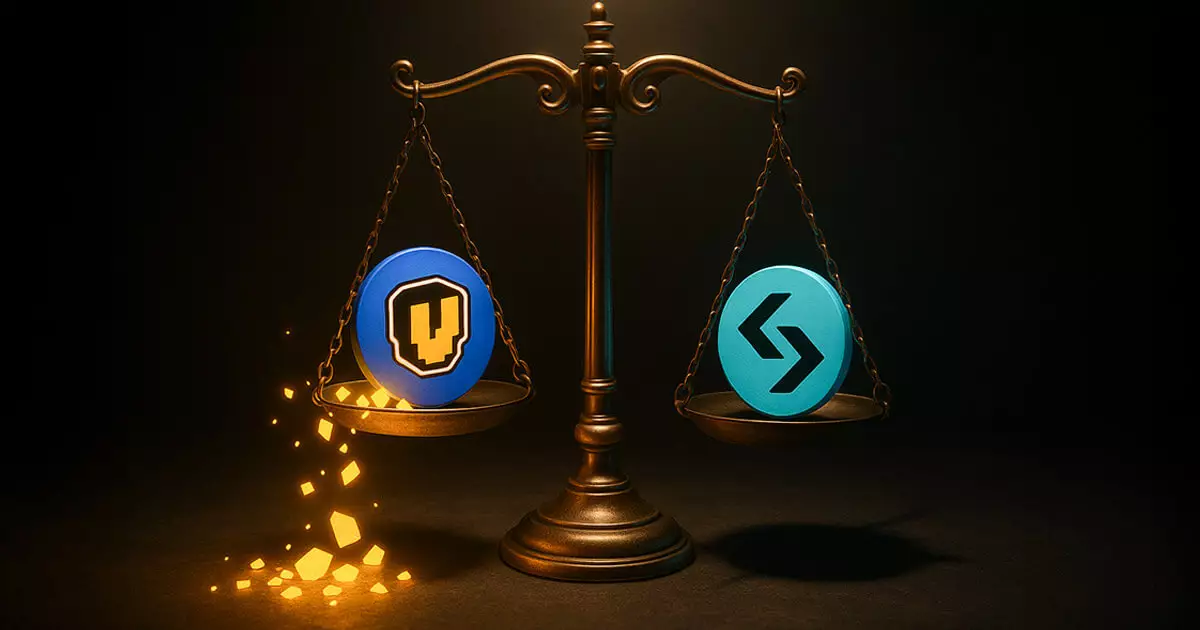In the fast-paced world of cryptocurrency exchanges, where fortunes can change in an instant, a recent incident involving Bitget has raised serious questions about ethical trading practices and the vulnerabilities of digital asset platforms. Bitget, a prominent crypto exchange, has taken the bold step of pursuing legal action against eight users, accusing them of exploiting a glitch to siphon off over $20 million from the VOXEL token. It’s a sobering reminder of how a momentary lapse in system integrity can lead to substantial financial chaos, ultimately eroding trust in the platform.
Exploiting System Vulnerabilities
On April 20, the VOXEL token experienced an astonishing 200% price surge, a result of a technical fault that disrupted normal trading operations on Bitget. Such unforeseen occurrences are troubling as they reveal a glaring lack of robustness within cryptocurrency systems. According to Bitget’s executive Xie Jiayin, the affected individuals are part of a “wool-pulling interest group.” This raises deeper issues: if this group had the foreknowledge necessary to exploit the glitch, what kind of systemic flaws existed that allowed for such opportunistic behavior? The suggestion that these actions were premeditated adds a layer of complexity to the entire scenario.
The Market Fallout
Trading volumes during this period ballooned to nearly $13 billion, astonishingly outpacing Bitcoin’s trading figures. While the crypto community may celebrate such volatility as part of the market’s allure, these massive fluctuations unveil potential ethical dilemmas. Traders were able to profit significantly with minimal investments, leading to profound implications for market integrity. The term “wool-pulling,” which indicates an organized effort to deceive, seems all too fitting in this context. Would we see similar exploits in the future if the systems meant to protect against them remain inadequate?
Bitget’s Response and Responsibility
In the aftermath of the incident, Bitget moved swiftly, freezing the suspicious accounts and attempting to reverse the abnormal transactions. The exchange has indicated plans to redistribute recovered funds to affected users through an airdrop program, showcasing a commitment to accountability. However, this does little to alleviate the underlying concerns about the exchange’s operational security. How many more unsuspecting traders will be entangled in the fallout of such glitches, and what assurances are there that this won’t happen again?
The Bigger Picture
Moving forward, Bitget’s announcement of a forthcoming report detailing the incident is an essential step toward transparency. However, the broader implications of this matter suggest that the cryptocurrency industry as a whole must engage in a serious reexamination of ethics and security protocols. As we embrace technological advancements in the financial sector, the responsibility to maintain integrity must not be overlooked. Are we witnessing the birth of a new paradigm in which ethical trading is overshadowed by profit-driven exploits and systemic failures, or can we steer the conversation back toward creating a sustainable and trustworthy marketplace? The answers might determine not just the trajectory of Bitget but the entire crypto ecosystem as we know it.

